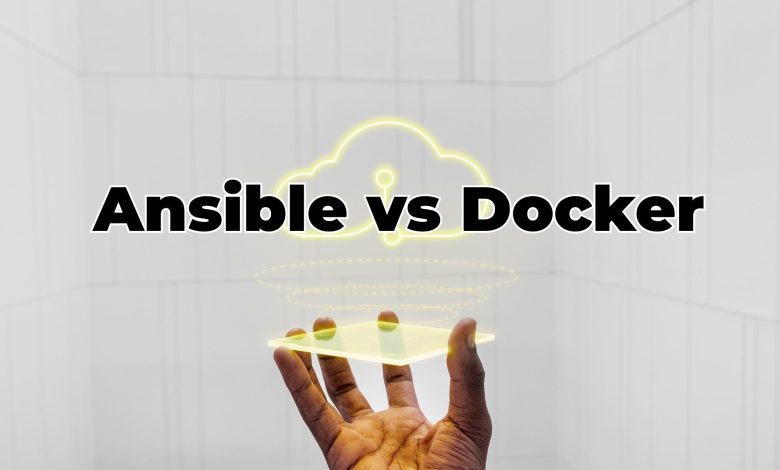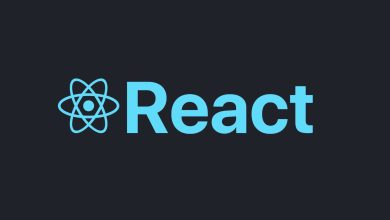Ansible vs Docker

In the world of DevOps, two technologies that have gained significant popularity in recent years are Ansible and Docker. Both of these tools can be used to automate different aspects of the software development lifecycle, but they differ in their approach and application. In this article, we will compare Ansible and Docker, highlighting their strengths and weaknesses and when to use each one.
What is Ansible?
Ansible is an open-source configuration management and automation tool. It uses a simple YAML syntax to define tasks that can be executed on remote servers. Ansible is agentless, which means that it doesn’t require any software to be installed on the target servers. Instead, it uses SSH to connect to the servers and execute the tasks.
Ansible can be used to perform a wide range of tasks, including provisioning servers, configuring software, and deploying applications. It can also be used for continuous deployment, testing, and monitoring.
How does Ansible Work?
Ansible is an open-source IT automation tool that works by using simple declarative language to describe and manage infrastructure as code. It works by connecting to remote hosts over SSH or WinRM and executing tasks using modules that are installed on the target system.
“Learn to Streamline Operations and Boost Efficiency with Comprehensive Ansible Training!”
Ansible relies on a centralized configuration file called an inventory, which lists the hosts to be managed and any variables or groupings associated with them. Tasks can be organized into playbooks, which are sequences of tasks that can be executed in a specific order. Ansible is designed to be easy to use and can be integrated with other tools in a DevOps toolchain for managing infrastructure and deploying applications.
What is Docker?
Docker is a containerization platform that allows you to package applications and their dependencies into containers. A container is a lightweight, standalone executable package that contains everything needed to run the application, including code, libraries, and system tools. Docker containers are portable and can be run on any platform that supports Docker.
Docker makes it easy to build, deploy, and run applications in any environment. It also provides a standardized way to manage application dependencies and ensures that applications run consistently across different environments.
How does Docker work?
Docker is a containerization technology that allows you to package your application and its dependencies into a single container, making it easy to deploy and run consistently across different environments. Docker works by using a Dockerfile to define the application’s environment and dependencies, which are then used to build an image. The image is a read-only template that contains all the code, libraries, and dependencies needed to run the application. This image can then be used to create one or more containers, which are lightweight, portable, and isolated runtime environments for the application.
Each container runs in its own isolated environment, with its own file system, network interfaces, and process space, but shares the same underlying operating system as the host machine. This allows containers to be more efficient and lightweight than traditional virtual machines. Docker also includes a range of tools for managing and orchestrating containers, including Docker Compose and Docker Swarm.
Ansible vs. Docker: What are the differences?
While both Ansible and Docker are tools that enable automation, they differ in their approach and functionality. Below are some of the key differences between Ansible and Docker:
- Configuration Management vs. Containerization: Ansible is a configuration management tool, while Docker is a containerization tool. Ansible is used to manage and configure infrastructure, while Docker is used to package and deploy applications.
- Complexity: Ansible is relatively simple and easy to use, while Docker has a steeper learning curve. Ansible uses declarative language that is easy to read and understand, while Docker requires a deeper understanding of containerization concepts and technologies.
- Deployment: Ansible deploys applications by executing tasks on remote systems, while Docker deploys applications by running them in containers. Ansible is suitable for managing infrastructure, while Docker is suitable for managing applications.
- Dependencies: Ansible relies on external packages and modules to execute tasks, while Docker includes all the dependencies needed to run an application in a container. Ansible requires an external agent to be installed on remote systems, while Docker does not.
- Scalability: Docker is highly scalable, as containers can be easily replicated and deployed across different systems. Ansible can also be scaled, but it requires more resources and management overhead.
When to use Ansible vs. Docker?
The choice between Ansible and Docker depends on the specific requirements and use case. Here are some scenarios where Ansible and Docker are more suitable:
Use Ansible when:
- You need to manage and configure infrastructure.
- You need to automate repetitive tasks, such as software installation, server configuration, and network management.
- You want a simple and easy-to-use tool for automation.
- You need to manage a large number of systems with minimal management overhead.
Use Docker when:
- You need to package and deploy applications across different environments.
- You need to isolate applications and their dependencies from the host system.
- You want a lightweight and portable solution for deploying applications.
- You need to scale applications quickly and efficiently.
Which one to choose between Ansible and Docker?
Ansible and Docker are two different tools that solve different problems and can be used together in a complementary way.
Ansible is primarily used for configuration management, automation, and orchestration of infrastructure and applications. It excels at managing complex systems with many moving parts and can be used to automate tasks such as server provisioning, application deployment, and configuration management. Ansible is designed to be simple to use and requires little to no prior knowledge of programming or scripting.
On the other hand, Docker is a containerization technology that allows you to package applications and their dependencies into portable, isolated containers. Docker is ideal for building, shipping, and running applications in a consistent and repeatable way across different environments, such as development, testing, and production.
So, if you need to manage complex infrastructure with many moving parts, Ansible might be the better choice. If you need to package and run your application consistently across different environments, Docker might be the better choice. However, both tools can be used together to create a powerful and flexible DevOps toolchain that can help you manage and deploy your applications more efficiently.
Ansible Pros:
- Simple, lightweight, and easy to use
- Ability to manage multiple servers simultaneously
- Agentless and easy to set up and use
- Supports a wide range of platforms and technologies
Ansible Cons:
- Limited support for complex workflows
- Can be slow when working with large infrastructures
- Requires a solid understanding of YAML to use it effectively
Docker Pros:
- Simplifies the deployment and scaling of applications
- Isolates applications and makes them portable across different environments
- Improves resource utilization and reduces infrastructure costs
- Supports a wide range of programming languages and frameworks
Docker Cons:
- Can be complex and difficult to set up and use effectively
- Requires significant system resources to run effectively
- Security risks can arise if container images are not properly managed and secured.
Conclusion
Ansible and Docker are both powerful tools that can be used to improve your infrastructure. While they serve different purposes, they can be used together to automate tasks, ensure consistency, and deploy applications in any environment. By understanding the strengths of each tool, you can use them together to build a more efficient and reliable infrastructure.
Also, you can go through this certification course for Tibco BE training that would help your career & knowledge to find the right job!!





